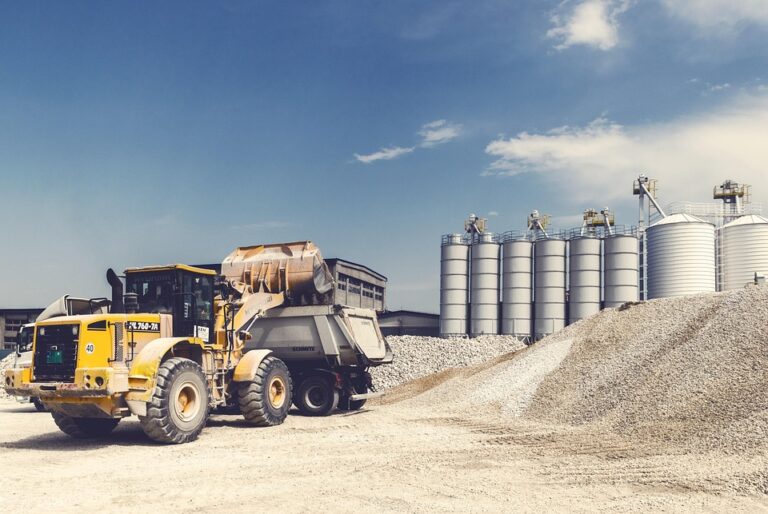Navigating Supply Chain Challenges: How the Trucking Industry is Adapting in Truck News
In a world increasingly reliant on logistics, the trucking industry plays a pivotal role in driving the economy forward. However, navigating the complexities of supply chain challenges has never been more critical. With rising fuel costs, a shortage of drivers, and the impact of global crises, the trucking sector is adapting to ensure efficacy and resilience in what can be termed a new era for Truck News.
The Current Landscape of the Trucking Industry
The trucking industry is a cornerstone of the U.S. economy, responsible for transporting over 70% of all goods transported in the country. However, recent statistics highlight the challenges faced by this essential industry. According to a report from the American Trucking Associations (ATA), the trucking industry faced a shortage of approximately 80,000 drivers as of 2021, a number that could grow to 160,000 by 2030. This driver shortage hampers the speed and efficiency that consumers and businesses have come to expect.
Moreover, supply chain bottlenecks, exacerbated by the COVID-19 pandemic, have led to significant delays in deliveries. A study by FreightWaves found that cargo ship wait times at ports reached up to 30 days, putting additional pressure on the trucking industry to act swiftly and efficiently.
Adapting Through Technology
One of the primary ways the trucking industry is adapting to these challenges is through the integration of advanced technology. Fleet management systems, GPS tracking, and route optimization tools help to improve efficiency and reduce costs. For instance, companies like FleetComplete have developed platforms that use real-time data to manage logistics, allowing for quicker responses to issues that arise during transportation.
Additionally, technology is also being leveraged to attract and retain drivers. Mobile apps offering flexible work hours, immediate payment options, and reduced paperwork are on the rise. This strategy aims to make driving a more appealing profession, particularly for younger generations who value work-life balance and technological integration.
Example: The Role of Electric Trucks
Electric trucks exemplify how technology is changing the industry. Companies like Tesla are tapping into the electric vehicle market, promoting trucks that promise to reduce operational costs while also being eco-friendly. As governments push for greener policies, the demand for electric trucks could become a significant trend in Truck News, allowing a smoother transition while addressing environmental concerns.
Strengthening the Workforce
Despite the challenges, the trucking industry is not solely reliant on technology. Recruitment and retention strategies play a crucial role in overcoming the ongoing driver shortage. Initiatives such as offering signing bonuses, educational programs, and improved working conditions are being explored by companies to attract new talent.
For instance, Swift Transportation launched a “Women in Trucking” initiative aimed at encouraging more women to enter the field, thus expanding the workforce. These efforts are supported by a commitment to improving fleet safety and creating a welcoming workplace environment.
Embracing Sustainability
Sustainability has also become a vital aspect of the trucking industry’s adaptation. As regulatory pressures ramp up to reduce emissions, many companies are adjusting their operational practices. The use of fuel-efficient routes and the optimization of load capacities are essential strategies being adopted, which significantly lower the carbon footprint.
In fact, a report from the Environmental Protection Agency (EPA) found that fuel-efficient trucking practices can reduce greenhouse gas emissions by up to 25%. By continually innovating and embracing sustainable practices, the trucking industry can secure its future while contributing positively to the environment.
The Road Ahead: Challenges and Opportunities
As the trucking industry continues to adapt to supply chain challenges, it is crucial to recognize that these obstacles also present opportunities for innovation and growth. Collaboration between trucking companies, technology providers, and regulatory bodies can enable more resilient supply chains that benefit everyone involved.
Key Takeaways:
- Driver Shortage: The trucking industry is facing a significant driver shortage, projected to double by 2030.
- Technology Adoption: Advanced technology solutions are a priority to improve efficiency and attract drivers.
- Sustainability Initiatives: Implementing greener practices is essential for compliance and market demand.
Conclusion: A Changing Landscape in Truck News
In conclusion, while the trucking industry grapples with substantial supply chain challenges, it is also embracing transformation and adaptation. The integration of technology, a commitment to workforce improvements, and sustainability initiatives are the cornerstones of this evolution, allowing the industry to remain resilient.
For further insights into the evolving trucking landscape, check out ‘How Logistics Are Evolving in the 21st Century‘ and ‘Challenges in the Supply Chain: What You Need to Know‘ on Buzzo.live. For more detailed statistics and information, visit the American Trucking Associations or consult the FreightWaves website.
Images Suggestions:
-
Image 1: A modern electric truck on the road.
Alt Text: Electric trucks in the trucking industry adapting to sustainability challenges.
- Image 2: A logistics team using advanced technology for route optimization.
Alt Text: Using technology for logistics efficiency in the trucking industry.
By keeping abreast of trends in Truck News, industry stakeholders can navigate upcoming challenges effectively, ensuring that the trucking sector continues to thrive in the modern economy.


